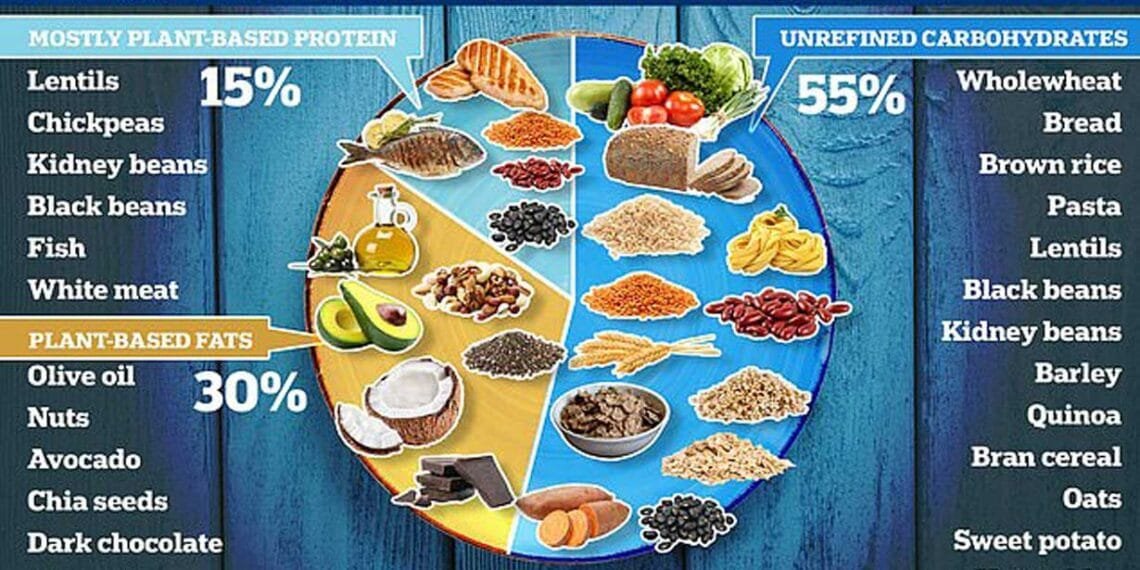“Every time you eat or drink, you are either feeding disease or fighting it” Heather Morgan.
Dietary patterns have a direct relationship with health outcomes hence the importance of healthy eating combined with an active lifestyle cannot be undermined. The desire to consume only healthy diets must be aided by an enabling food environment that includes, but is not limited to government policies, regulations of food products, and public awareness on the dangers of consuming highly salted foods and other unhealthy diets, among others.
According to the Non- Communicable Diseases Alliance, non-communicable diseases (NCDs) such as cardiovascular disease are the primary cause of death and disability worldwide. Hypertension alone accounts for 11 percent of deaths from cardiovascular diseases in Nigeria. Another study by Harvard Medical School confirmed that these diseases can be prevented by taking appropriate actions to modify risk factors such as unhealthy diets and sedentary lifestyles.
Furthermore, the study revealed that simply reducing sodium/salt intake by limiting consumption of canned, convenience, and processed foods and replacing them with healthy diets produced a significant reduction in blood pressure.
The World Health Organization (WHO) had also recommended that a healthy diet should be rich in fiber, fruits, vegetables, beans, lentils, nuts, and whole grains. Habitually eating from farm to plate offers a complete package of health benefits, and the potential to significantly reduce the risk of non-communicable diseases (NCDs) such as hypertension, heart disease, type II diabetes, obesity and some cancers, unlike processed foods that are stripped of vital nutrients and therapeutic benefits.
On the other hand, unhealthy diets comprise mostly foods that are heavily processed and typically high in salt, sodium, sugar, and saturated fats. Sometimes additives like food coloring, sweeteners, preservatives, and other artificial substances are added to these foods during processing to improve taste, appearance, texture, and shelf life; thereby making them unhealthy for human consumption. Examples of processed foods include bread, noodles, biscuits, processed meat products like suya, cereals, canned food, high-sodium seasonings, and salad dressings to mention a few.
The Nigerian food environment is seriously challenged due to inadequate government policies, climate change, insecurity, insufficient funding, and poor support from the government to facilitate smallholder farmers’ access to productive assets and resources to boost production, amongst others.
Read also: OWA marks the 28th Ken Saro Wiwa memorial in Lagos
Industries, on the other hand, seize the opportunity to flood the markets with cheap, easy-to-use, and ready-to-consume food products with longer shelf life, low nutrition, and health benefits. Due to loopholes in existing food policies and regulations, these industries adopt intense marketing strategies to promote these products as ‘healthy, quick and easy’ alternatives; others design their products with cartoons to target vulnerable groups like children with misleading information thereby increasing demand for highly salted, sugary, or fatty foods. Some of these adverts go to the extent of influencing consumer behaviors by portraying the consumption of ultra-processed foods as socially acceptable, and classy.
Consequently, this has resulted in a nutrition transition in food consumption patterns within the country. Preparation of nutritious fiber-rich meals from scratch within the household is fading out gradually with more families eating out more frequently. Nowadays, parents fill their children’s lunch packs with unhealthy processed foods instead of nutritious meals or fruits, these behaviors have resulted in a rising number of children diagnosed with hypertension, strokes, and cardiovascular diseases at an early stage; decades ago, these diseases were only prevalent among adults. This nutritional shift began in high-income countries but has now reached countries at all income levels.
Policy interventions are needed to curb the rising consumption of ultra-processed foods and reduce their negative health outcomes. To stem the ugly tide of a rising burden of hypertension in the country, the government must take proactive steps to enforce healthy food policies to create an enabling environment for the adoption of healthy eating habits. The government must implement programs and initiatives that will facilitate the availability, access, stability, and utilization of healthy and nutritious foods across the country, thereby creating a robust national food system and a well-nourished society.
Mass media campaigns, health promotion, and nutrition education interventions can be adapted to sensitize members of the public and increase demand for healthier food options. School programmes and curriculums should also be reviewed to reach parents and children with nutrition education. Promotion and sales of ultra-processed foods must be restricted or banned in schools to promote healthy eating among school children.
Finally, it is imperative for competent agencies responsible for legislation and implementation of food safety standards in Nigeria to develop strategies for the regulation of food industries, SMEs and street food vendors, to ensure compliance with global standards. Advertisement restrictions must be in place to safeguard consumers from industry marketing tactics. Once all of these are achieved, health outcomes will greatly improve and there will be a significant boost in national productivity.
Odele, Programme Officer, Corporate Accountability and Public Participation Africa (CAPPA), writes from Abuja.






